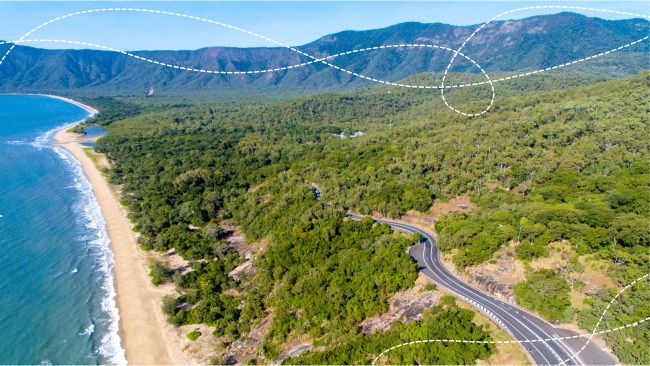Are original ideas even possible anymore?
We’ve compiled four ways you can find your “new” in an ever-changing world.

There’s no denying our world is evolving at an exponential rate, and this change is bringing new opportunities to make a difference. Innovation is all around us and discovering it will require a new approach. The next big ideas may come from rethinking how we learn, work, communicate and live. We’ve compiled four ways you can find your ‘new’ in a rapidly changing world.
A COLLABORATIVE APPROACH
Whether it’s finding someone to bounce ideas off, a project partner to join forces with, or an inspiring space that sparks that next big idea, there’s something special about collaborative and co-working spaces.
The Harvard Business Review once said people thrive in co-working spaces because they feel they have more job control, they see their work as meaningful and they feel part of a team.
Just ask James Rabbitt — University of Newcastle Bachelor of Information Technology student and founder of startup Broader Learning. Utilising one of the university’s co-working spaces — I2N Hub — James was able to foster creative partnerships, develop his idea, and take his business to the next level.
His startup, which teaches coding and robotics to kids in schools, runs programs across Newcastle and the Hunter region and now has over seven employees, continuing to grow each day.
“There’s a community of collaboration that allows you to network with other people who have similar mindsets, hold business meetings, find team members and project partners, and that’s a really crucial element to starting a company here in Newcastle,” said James.
SEARCH FOR ANSWERS OUTSIDE THE BOX
It might sound like a cliché, but sometimes you have to think outside the box. While this notion isn’t groundbreaking or new, the innovative ideas that could come from taking a different approach, just might be.
With a five-year survival rate of just 7 per cent, pancreatic cancer remains the fourth leading cause of cancer death in Western societies. With so few options for such a poor prognosis, Associate Professor Chris Scarlett and his team of researchers from the University of Newcastle were inspired to look in novel places for potential treatments — specifically, the ocean floor and sea sponges.
Through perseverance and innovative thinking, the team have discovered certain types of sea sponges possess compounds that can be used in treatments against pancreatic cancer. They hope their research might one day find a cure.
“None of us can say we haven’t been touched by cancer in some way,” he said. “Knowing that what we do has the potential to better somebody’s life gets me out of bed each morning, and I believe that in cancer research you can make real progress when you don’t lose sight of the big picture.”
LISTEN TO WHAT PEOPLE WANT
Finding out what people want, opening your eyes and ears to the needs of your market and understanding why they need it is imperative to innovation.
University of Newcastle Master of Architecture student Lily Freeman proves innovation isn’t always robots, computers and apps. Passionate about humanitarian architecture, Lily listened to communities in the outback of Central Australia, the hillside favela of rural Brazil and natural disaster areas of the Philippines to understand what infrastructure they need, and to help make that happen.
For one project, she collaborated with leading Australian architects and local Indigenous communities to design better, smarter housing infrastructure in Town Camps outside Alice Springs, a project covered by the prodigious Architecture AU.
“It’s so important to listen. Only then do we stand a chance to solve problems and make a difference,” said Lily.
STEP INTO THE VIRTUAL WORLD
Virtual Reality (VR) is fast becoming a platform used in our everyday life. While the likes of Google and Samsung are releasing VR headsets for personal entertainment, the University of Newcastle is bringing new life to the virtual world using the technology.
Midwife and lecturer Donovan Jones and his team applied virtual reality and augmented reality to the age-old experience of childbirth to teach future midwives to save newborn lives.
Compromised Neonate program is a first-of-its-kind VR experience that simulates saving at-risk newborn babies. The Road to Birth program gives the user the chance to explore a life-size simulation of both mother and infant through all stages of pregnancy.
“Ultimately, this technology is about helping save babies’ lives,” said Craig Williams, innovation manager for the IT team.
Through multidisciplinary collaboration, the researchers and innovation team are using virtual reality to create an immersive learning opportunity — maximising the students’ abilities to explore and learn in a safe setting.
New can transform industries, improve lives, empower communities and drive innovation. Finding this new means looking at technology, a problem or the search for a solution with a different perspective. Find your new at newcastle.edu.au



